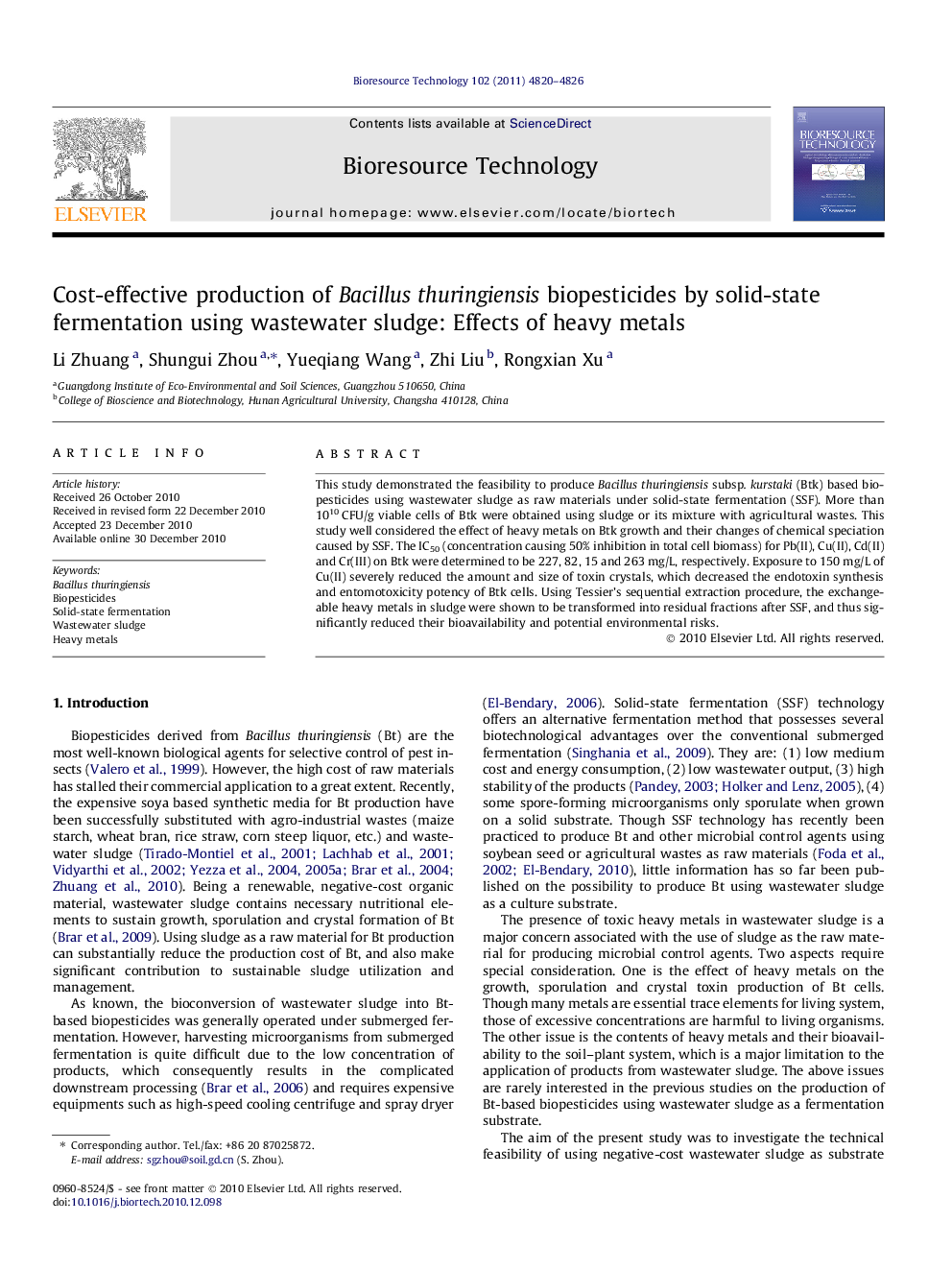| Article ID | Journal | Published Year | Pages | File Type |
|---|---|---|---|---|
| 10395202 | Bioresource Technology | 2011 | 7 Pages |
Abstract
This study demonstrated the feasibility to produce Bacillus thuringiensis subsp. kurstaki (Btk) based biopesticides using wastewater sludge as raw materials under solid-state fermentation (SSF). More than 1010Â CFU/g viable cells of Btk were obtained using sludge or its mixture with agricultural wastes. This study well considered the effect of heavy metals on Btk growth and their changes of chemical speciation caused by SSF. The IC50 (concentration causing 50% inhibition in total cell biomass) for Pb(II), Cu(II), Cd(II) and Cr(III) on Btk were determined to be 227, 82, 15 and 263Â mg/L, respectively. Exposure to 150Â mg/L of Cu(II) severely reduced the amount and size of toxin crystals, which decreased the endotoxin synthesis and entomotoxicity potency of Btk cells. Using Tessier's sequential extraction procedure, the exchangeable heavy metals in sludge were shown to be transformed into residual fractions after SSF, and thus significantly reduced their bioavailability and potential environmental risks.
Related Topics
Physical Sciences and Engineering
Chemical Engineering
Process Chemistry and Technology
Authors
Li Zhuang, Shungui Zhou, Yueqiang Wang, Zhi Liu, Rongxian Xu,
